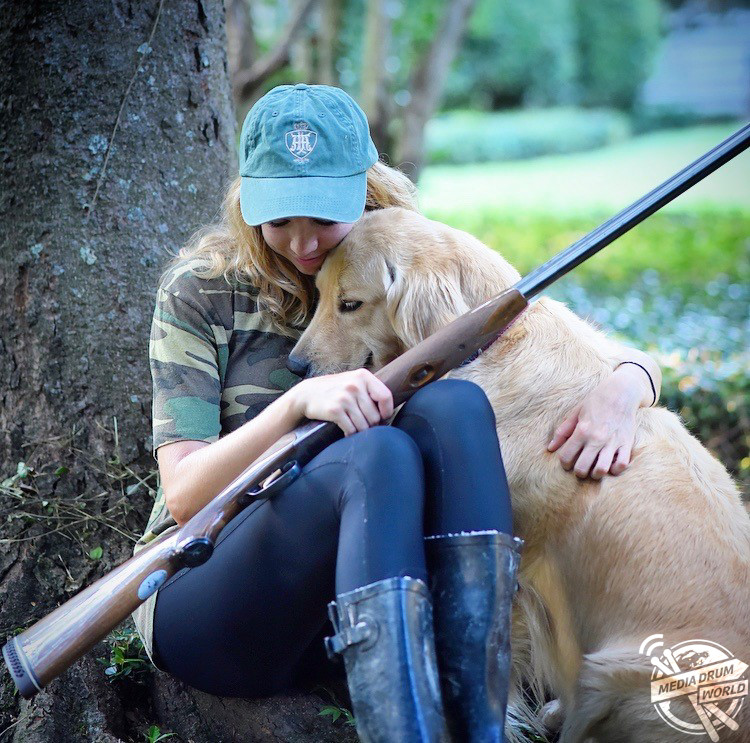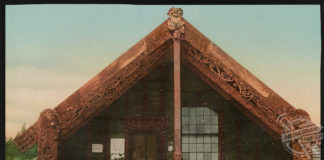By Ben Wheeler
MEET the animal-loving trainee vet who despite her ‘zoo’ of seventy-something pets is also a passionate hunter.
Images show the two sides to Elizabeth Gambel, 24, from Hammond, Louisiana, USA, who on the one hand can be seen nursing a variety of animals back to health as part of her course at LSU School of Veterinary Medicine.
Opposingly, Elizabeth can also be seen posing with animal carcasses that she has successfully hunted, ranging from fish to small and large game.
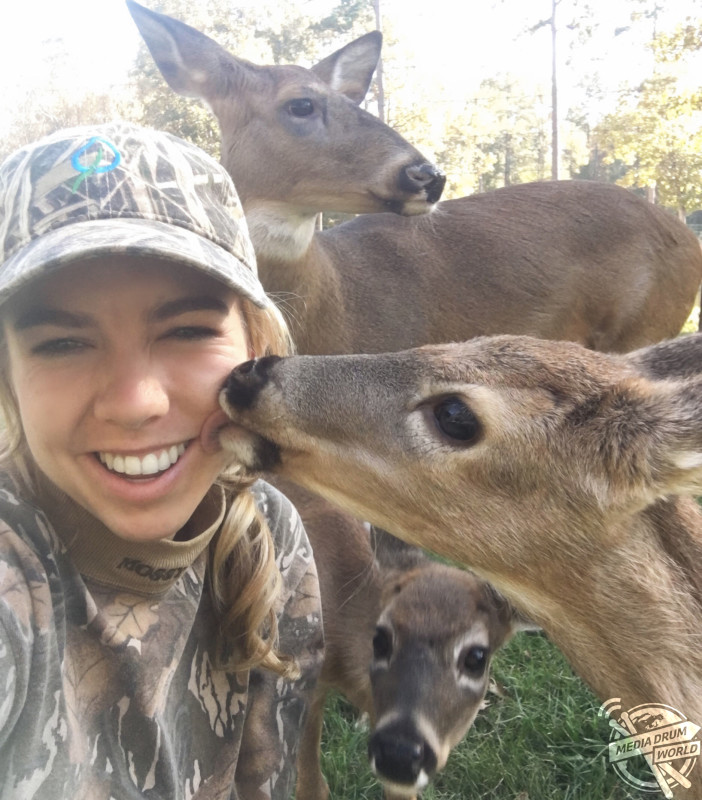
Despite what many would believe to be a contradictory lifestyle, Elizabeth is out to change perceptions of hunters, who she describes as ‘the single biggest group of animal lovers that I have ever come across.’
“A huge misconception about hunters is that we do not love animals or care about the environment,” she said.
“This could not be more opposite, not only are they animal lovers but they are also extremely passionate about eco-conservation.
“They spend countless hours studying animals’ every movement; learning how to speak their language with calls and scents and strategize where an animal will travel with a well-trained eye.
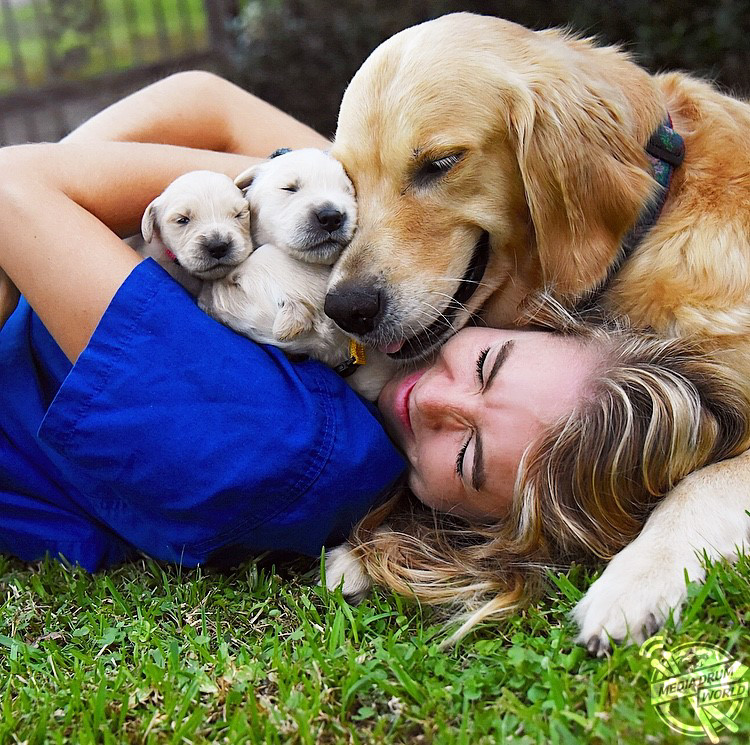
“They understand when an animal is overpopulated or endangered and actively engage in maintaining a healthy balance within the ecosystem.
“Hunters drastically help curtail disease outbreaks, prevent food shortages that lead to mass starvation and control the growing number of predators that otherwise would be preying on livestock and digging through garbage in urban areas.”
Elizabeth went on to discuss the upbringing that sparked her love for animals, and hunting them.
“I moved to Hammond from New Orleans when I was six years old and have been fortunate enough to grow up surrounded by woods, nature and animals, so I developed passion for the outdoors at an early age,” she recalled.

“Hunting has been a part of my life for as long as I can remember thanks to my father. One of the first childhood memories I have is my dad waking me and my sister Sara at 5am to hunt the wood ducks down by the river next to our house.
“Sara and I would throw on our boots and every warm item of clothing we could find and fly out the door.
“It used to be so difficult to sit still and wait for the ducks to fly in, but it was so worth it to watch my dad take a shot and bring the ducks down from the sky.
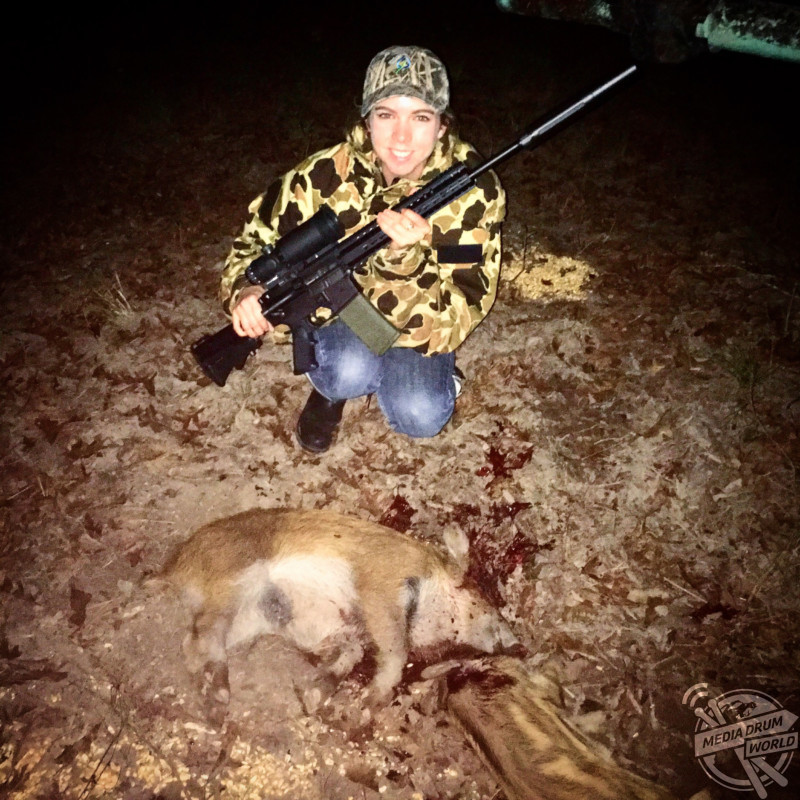
“As soon as the ducks splashed into the marsh grass, my sister and I would race to them hoping to claim one as our own. After the hunt, the three of us would climb back up the hill to our house and clean the ducks before cooking them on the grill there and then for breakfast.
“My dad’s goal had been achieved, we were officially hooked on hunting and could not wait to go again.
“We’ve also managed to collect a myriad of pets over the years and now have seventy-something family members that I like to call the Gambel Zoo.

“Dogs, cats, horses, bunnies, ducks, chickens, a dove, cockatiels, a pet deer, a hedgehog, and turtles are just some of the critters that have made their way into our home and hearts.
“It was a big responsibility to care for all these animals but an incredible way to grow up and sparked my passion for veterinary medicine.”
Finally, Elizabeth described how she was once conflicted about her obvious love of animals and passion for hunting and how she overcame this, whilst also detailing the reaction she receives online.
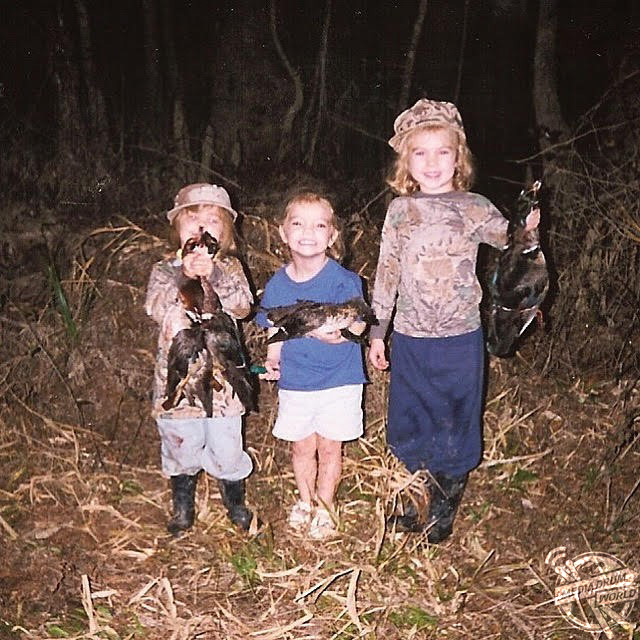
“There was a two-year period of my life that I like to call my hunter’s mid-life crisis. I felt like a hypocrite, like I was betraying my life’s mission and simply couldn’t hunt without a heavy guilt laying on my conscience – so I quit with the intention that I would never hunt again,” she said.
“During that time, I began to learn more about the factory-farmed meat industry; the ill effects of hormone injected meat on my health, the enormous impact of air and water pollution, the detrimental economic effects it has upon rural populations and the horrific conditions that no sentient creature should have to endure.
“The more I learned, the less inclined I was to partake in the demand that was fuelling the industry, I decided from that moment forward if I was going to eat meat, it was only fair to my health, the environment and the animal if it lived a natural lifestyle in the wild, free of cages and hormones, and most importantly, was harvested by yours truly.
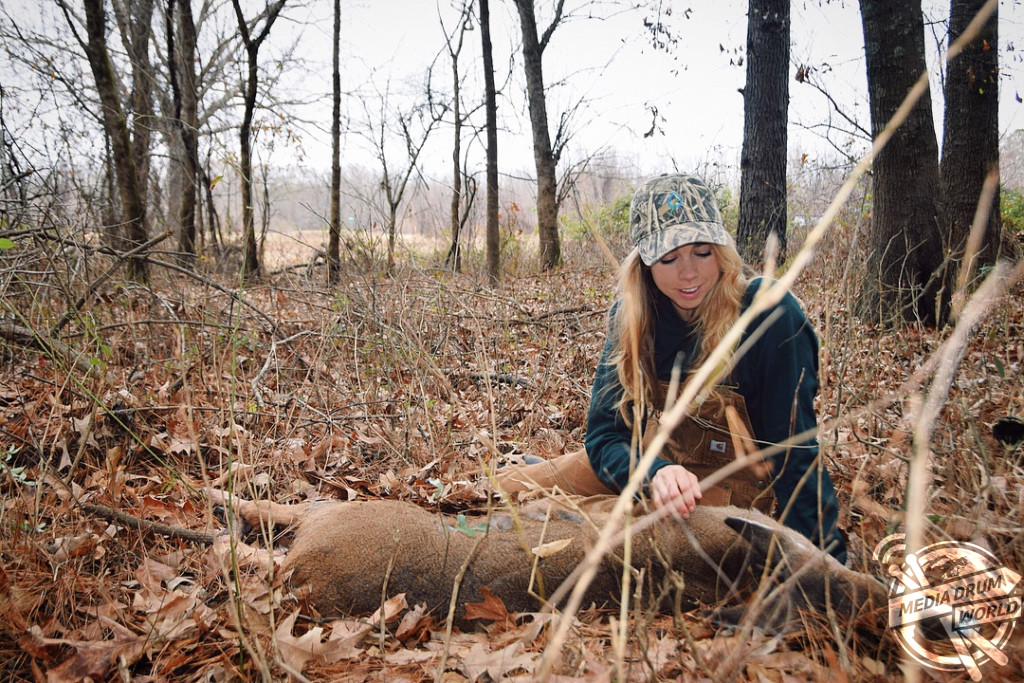
“I get a wide variety of comments on social media. Most of my followers are people within the hunting community, who are nothing but supportive and encouraging and it’s been amazing sharing ideas and learning from them.
“I also receive a fair amount of aggressive and negative feedback from anti-hunters. While admittedly it can be uncomfortable to be outright attacked, I appreciate the passionate opinions because it gives me the opportunity to educate people who have not been exposed to hunting.
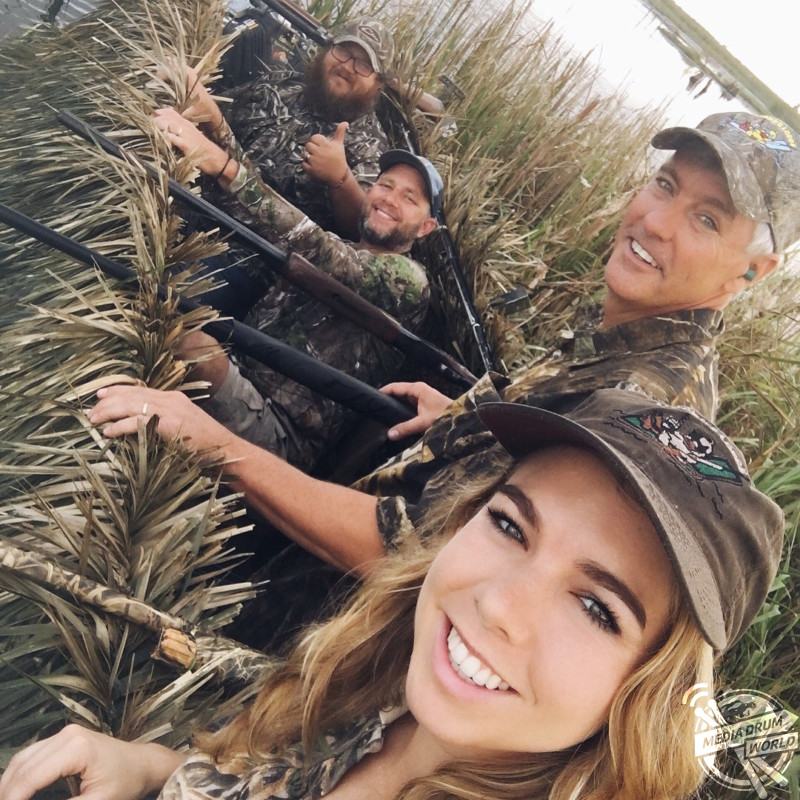
“Even if the conversation starts on an aggressive note, I explain to them that I sympathize with their cause to help animals and would love to hear what they have to say if they will hear me out as well.
“There have been several hardcore animal activists who I have actually gained the respect of by taking this approach; and I believe if more people were to just to understand each other’s perspectives, we could work around our disagreements to find common goals.”

